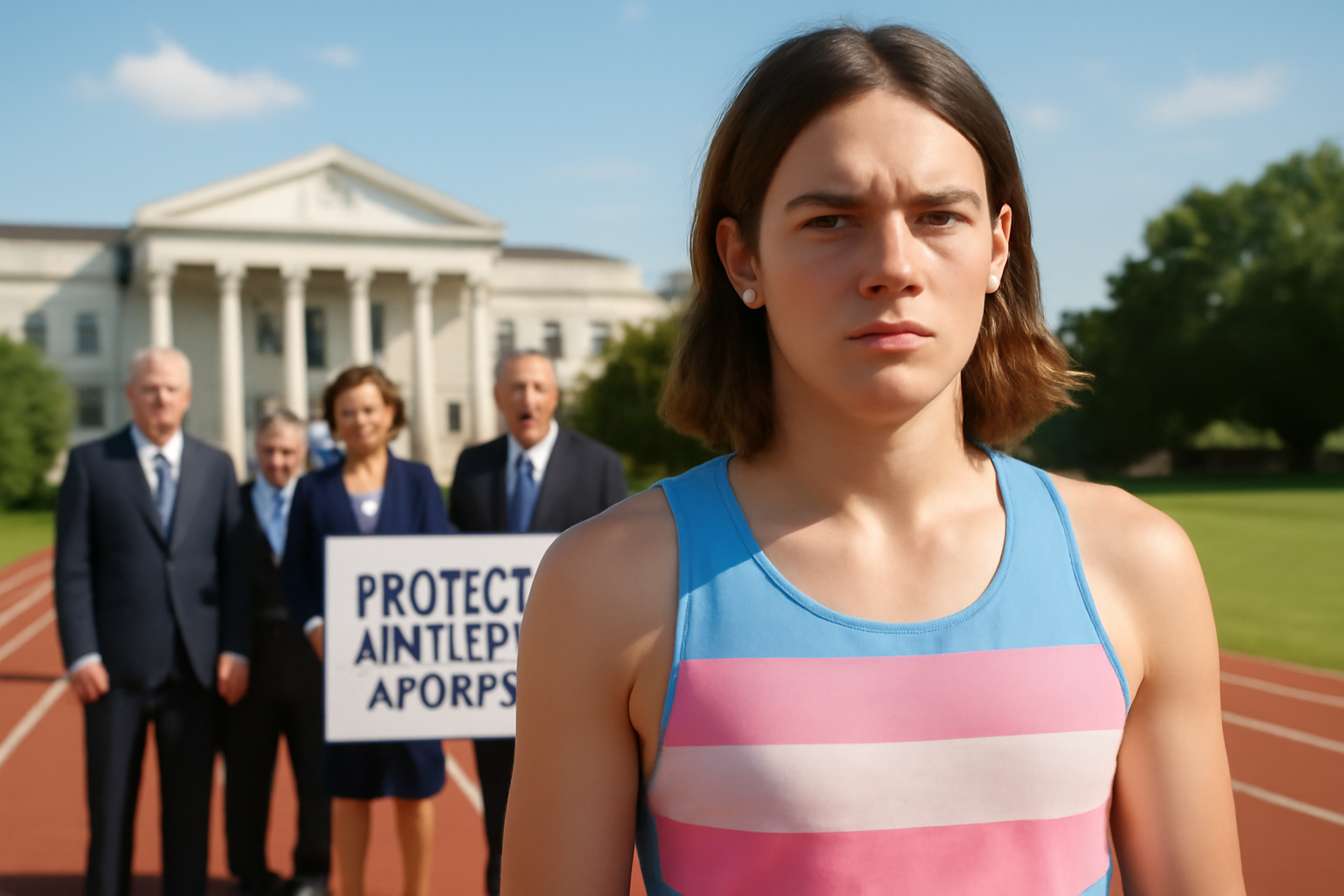
The topic of transgender athletes in sports has been a focal point of intense debate and legislative action across various political arenas in recent years. Recently, the House of Representatives has expedited discussions on a potential ban that could impact the participation of transgender individuals in sports according to their gender identity.
The proposed legislation, which has garnered significant attention and controversy, aims to restrict transgender athletes from competing in categories that align with their gender identity. Proponents of the bill argue that this measure is necessary to ensure fair competition in sports, claiming that it upholds the integrity of women’s sports. However, the bill has been met with strong opposition from LGBTQ+ advocates and allies who argue that it discriminates against transgender people and undermines their rights and dignity.
Understanding the Legislative Proposal
The legislation under discussion is designed to apply to scholastic sports, impacting both high school and collegiate levels. It asserts that athletes should participate in sports based on their sex assigned at birth, rather than their gender identity. Supporters of the bill claim that this approach is essential to preserving fair competition, particularly in women’s sports, where they argue that transgender women might have physical advantages.
Critics of the proposal, however, highlight that this argument is not supported by comprehensive scientific consensus. They emphasize that sports bodies, such as the International Olympic Committee, have established guidelines that allow transgender athletes to compete in accordance with their gender identity, provided they meet specific criteria. These critics argue that the legislative push is based more on societal bias than on factual evidence.
Impact on the LGBTQ+ Community
The LGBTQ+ community and their allies have been vocal in their opposition to this proposed legislation. They argue that such measures are not only discriminatory but also harmful to the mental and emotional well-being of transgender individuals. Transgender youth, in particular, are at risk, as exclusion from sports can lead to increased feelings of isolation and depression, exacerbating the challenges they already face in a society that can be unaccepting of their identity.
Organizations advocating for LGBTQ+ rights have been urging legislators to consider the broader implications of such laws. They highlight the importance of inclusivity in sports, arguing that participation not only fosters physical health but also important social connections and personal growth. Excluding transgender athletes from participating according to their gender identity sends a message of exclusion and non-acceptance, counteracting efforts towards fostering a more inclusive and understanding society.
Public Response and Future Outlook
The fast-tracking of this legislative proposal has sparked widespread public discussion. Many sports organizations, civil rights groups, and educators have come forward to express their concerns. Public campaigns and petitions have been launched to oppose the ban, with many calling on their representatives to vote against the bill.
As the legislation progresses, it faces potential hurdles not only in the legislative process but also in potential legal challenges that could be brought against it. Legal experts warn that such a ban may violate constitutional protections against discrimination. Furthermore, it could face challenges under Title IX, which prohibits sex-based discrimination in federally funded education programs.
In the face of these challenges, it is crucial for those in the LGBTQ+ advocacy sphere to remain vigilant and proactive. Many activists see this as an opportunity to educate the public on issues facing the transgender community and to push for policies that are inclusive rather than exclusionary.
As this legislative effort moves forward, it will be important to monitor its developments, engage in dialogue with lawmakers, and continue advocating for the rights and inclusion of transgender individuals in all aspects of society, including sports. In doing so, there remains hope that understanding and acceptance will ultimately prevail over fear-based measures.
Related Posts
Triumphant Trans Woman Wins Legal Battle and Inspires Others to Stand Up for Their Rights
Breaking new ground: a landmark victory in transgender rights After battling in courtrooms and enduring endless challenges, Diana Portillo, a transgender woman, has secured a monumental victory in her decade-long fight against workplace discrimination. The result? Nearly $1 million awarded in a historic settlement. But this isn't just a win on paper—it represents a powerful precedent in combati [...]
Pride Month in Latin America: Protests and Demands for Equality
**Celebrating Pride and advocating LGBTQ+ rights in Latin America** Pride Month in Latin America was a lively mix where celebration met activism. Communities united, not just throwing a party but making a stand—demanding equality and pushing governments toward better protection and rights recognition. Throughout Latin America, pride events erupted in marches and cultural displays, each with a c [...]
Transgender Erasure Actions Implemented by National Park Service
```html Trump administration's impact on national park service and transgender recognition The Trump administration made notable moves in undermining transgender representation, which included directing agencies like National Park Service not include "T" and "Q" when they refered “LGBTQ” in any official communication. This move seems part a broader plan by this administration aimed at reducin [...]